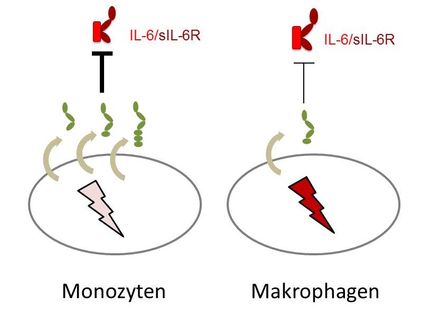MorphoSys Publishes Preclinical Data from MOR103 Program
Antibody Shows Ability to Inhibit Disease in an Established RA Model
Advertisement
MorphoSys AG announced the publication of preclinical data from its most advanced proprietary drug development program MOR103, a fully human HuCAL antibody directed against GM-CSF. The preclinical data presented at the human antibodies and Hybridomas (HAH) Conference in New York, USA provides strong supporting evidence for MOR103 as a treatment for rheumatoid arthritis (RA), and forms the basis for the Phase 1 clinical trial currently ongoing.
"The results published today augment the growing data package we have around our lead proprietary program MOR103 and add further value to the program," commented Dr. Marlies Sproll, Chief Scientific Officer of MorphoSys. "These findings support our understanding of the target biology of GM-CSF. Specifically we believe that GM-CSF is a key mediator in the inflammatory cascade, leading to increased production of other pro-inflammatory cytokines, chemokines and proteases and thereby ultimately to articular destruction in RA."
The data show that MOR103 inhibits the signs and symptoms of RA in vivo, in a dose-dependent manner. The study used the established streptococcal cell wall-induced arthritis model in rats. The antibody was administered in a range of concentrations, and brought about significant reduction of knee joint swelling and improvement in joint histopathology in a dose-dependent manner. In addition, significantly reduced cytokine levels and white blood cell influx were observed in the synovium surrounding the joints. No relevant toxicity effects were observed in a standard repeat dose rhesus monkey study.
In vitro, MOR103 showed very strong binding to human GM-CSF, blocking binding to the GM-CSF receptor and effectively inhibiting inflammatory disease-related physiology such as cell proliferation, cell migration and activation. Additionally, the antibody exhibited very high target specificity, with no cross-reactivity to other pro-inflammatory cytokines such as IL-3, IL-4, IL-5 or M-CSF nor any non-specific binding to a panel of human tissues. MOR103 also recognizes rat and rhesus GM-CSF, both helpful criteria with regard to the development process.
MOR103 is currently being tested in a Phase 1 clinical trial to assess the safety, tolerability and pharmacokinetics of this fully human HuCAL antibody. The Phase 1 trial is a randomized, double-blind, placebo-controlled, single-ascending dose study and is being conducted in seven groups with nine healthy volunteers in each cohort. The dosing of all volunteers has been completed and follow-up analysis is ongoing. Final data are expected in Q2 2009.
Other news from the department research and development
Most read news
More news from our other portals
See the theme worlds for related content
Topic world Antibodies
Antibodies are specialized molecules of our immune system that can specifically recognize and neutralize pathogens or foreign substances. Antibody research in biotech and pharma has recognized this natural defense potential and is working intensively to make it therapeutically useful. From monoclonal antibodies used against cancer or autoimmune diseases to antibody-drug conjugates that specifically transport drugs to disease cells - the possibilities are enormous

Topic world Antibodies
Antibodies are specialized molecules of our immune system that can specifically recognize and neutralize pathogens or foreign substances. Antibody research in biotech and pharma has recognized this natural defense potential and is working intensively to make it therapeutically useful. From monoclonal antibodies used against cancer or autoimmune diseases to antibody-drug conjugates that specifically transport drugs to disease cells - the possibilities are enormous















































